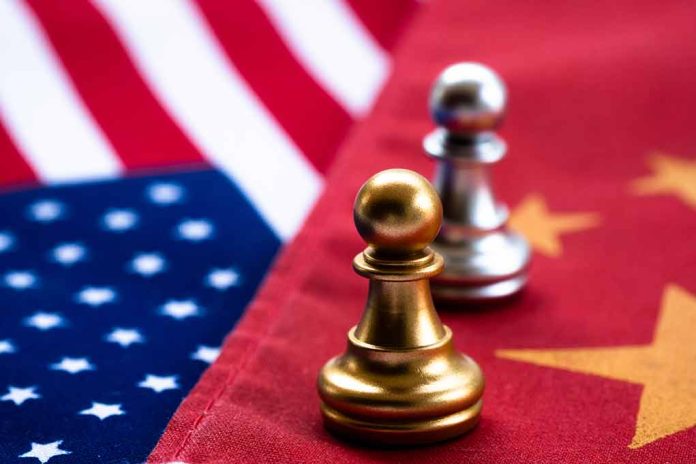
China’s recent decision to bolster its nuclear arsenal has significant implications for its tense relationship with the United States and global security dynamics.
At a Glance
- The Pentagon reports over 500 nuclear warheads now in China’s arsenal.
- China plans to reach up to 1,500 warheads by 2035.
- The expansion intensifies the strategic competition with the U.S.
- China asserts a defensive nuclear policy, despite the expansion.
China’s Nuclear Expansion
The Pentagon’s recent report reveals China’s nuclear capabilities have grown to over 500 operational warheads, up from an estimated 400 in 2021. Though this number is dwarfed by the U.S. and Russia, each possessing over 5,000 warheads, China’s expansion remains a global concern. The Pentagon has projected that China’s arsenal could reach 1,000 by 2030 and possibly 1,500 by 2035, illustrating a clear trajectory towards major nuclear modification.
China’s nuclear development strategy is not limited to increasing the number of warheads. Reports suggest new nuclear silos and enhanced launchers are under construction, marking a tangible shift towards military modernization. This transformation highlights China’s push towards securing a formidable nuclear deterrent and capability.
Implications for US-China Relations
The Chinese government argues that their nuclear armament program is primarily defensive—an assertion that adds a layer of complexity to US-China relations. The Chinese Foreign Ministry defends this expansion as a necessary step, insisting that they were “forced” into such measures. This development continues to fuel tensions between China and the United States, with both nations emphasizing strategic competition as a backdrop for these activities.
“China’s development of nuclear weapons is a historic choice forced to be made,” said Guo Jiakun, Chinese Foreign Ministry spokesperson.
With China asserting that it does not intend to engage in an arms race, the Pentagon nevertheless notes China’s rapid nuclear growth as part of ongoing strategic competition. This escalation comes amid heightened tensions in regions like the Taiwan Strait, where Chinese military presence has sparked fears of potential conflict.
Global Security Concerns
The expansion of China’s nuclear capabilities inevitably impacts global security. Countries worldwide are facing an increasingly complex geopolitical landscape as China’s nuclear modernization supplements its standing as a major global power. The Pentagon’s latest findings affirm that these developments are part of a broader strategic vision that includes both nuclear and non-nuclear capabilities.
U.S. Secretary of the Air Force Frank Kendall said, “It gets more dangerous as other countries proliferate [nuclear] weapons. It gets more dangerous as people think about using tactical nuclear weapons.”
There is potential for future arms control discussions involving the U.S., China, and Russia to address these tensions. However, the current trajectory suggests an arms race climate unless diplomatic efforts are addressed. The world watches closely as China and the U.S. navigate this precarious path, shaping the future of nuclear policy and global peace.
Sources:
- https://www.npr.org/2023/10/19/1207156597/new-pentagon-report-claims-china-now-has-over-500-operational-nuclear-warheads
- https://www.newsweek.com/china-news-responds-us-nuclear-weapons-warning-2015829
- https://www.msn.com/en-us/news/world/china-says-forced-to-acquire-nuclear-weapons-as-us-sounds-warning/ar-AA1xiq9Z?ocid=BingNewsSerp
- https://dnyuz.com/2025/01/16/china-says-forced-to-acquire-nuclear-weapons-as-us-sounds-warning/



